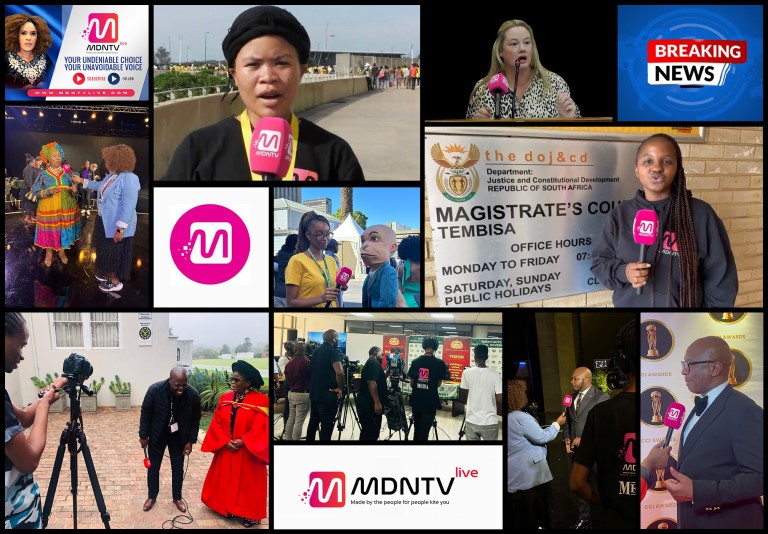| 2025/02/14 |
|
Thank you Programme Director, Brigadier (Dr Reddy), Let me acknowledge the:
National Police Commissioner, General SF Masemola, Today, marks the conclusion of our three-day workshop, which was aimed at developing sustainable, practical solutions to the challenges experienced by our members concerning their health and overall wellness. Over these past days, you have engaged in meaningful discussions, shared valuable insights, and committed yourselves to finding tangible solutions that will improve the lives of the men and women who dedicate themselves to serving and protecting the people of South Africa. Yesterday, the various commissions engaged extensively on their respective topics, each focusing on ways to improve existing wellness programs within the SAPS and, ultimately, to enhance the morale of our members. The findings and recommendations drawn from these deliberations will not be left on paper; they will be dissected, refined, and packaged into sustainable and practical actions that will be turned into policy, legislation and in some instances, practice. Furthermore, these recommendations will form part of the discussions at the upcoming National Policing Summit in April, where we will take further steps towards the policing we need and want. Off the bat, I want to inform the various Commission heads that the journey has only just begun – you will undertake this journey together with us as we work toward concretising the recommendations. Our vision is clear: we want a police service that is professional, effective, and efficient—one whose members are mentally, emotionally, spiritually, and financially fit and healthy. A police service that is resilient, equipped, and capable of confronting the many challenges that come with law enforcement. We need to take a look at the modern trends in managing organisations and how feasible it is to adopt those into policing. No one wants a decaying / failed organisation. The name of the game is: innovation, research – what it requires to remain relevant. We need to be competitive so as not to lose members and create opportunities within the organisation. On promotions, – how do we bridge the Gap? Perhaps we might need to devise a multi-factor index. Another aspect we will need to look at is the functionality of Bargaining Council mechanisms and how both the Employer and Labour can best work together for the members. Equally, we want a police service that is free of corruption. Let me be unequivocal: corruption has no place within the SAPS. We will not tolerate any form of misconduct, and no member will be spared if they fail to uphold the integrity of this noble profession. At the core of this is ethical leadership and professionalism – what is it that comes with “respecting the badge”. Allow me to share a short story with you, about Abraham Lincoln, the 16th U.S President and how Edwin Stanton came to be the U.S Secretary of War during his tenure. Edwin Stanton first met Lincoln in 1855, while he was still a lawyer and working on a particular case – he reportedly treated Lincoln with disdain. Later, in the 1860 presidential election, Stanton was an advocate of Lincoln’s Southern Democrat adversary John Breckinridge, whom Lincoln defeated in the polls to become the 16th president of the USA. Despite Stanton’s widely-known and general dislike of the president – he continued to vocally criticise Lincoln during the early stages of his administration – Lincoln recognised Stanton’s talent as an effective political force, especially relating to his capacity for efficient organisation. Recognising a potential use for Stanton’s talents, Lincoln appointed his would-be enemy to the crucial position of Secretary of War after Simon Cameron resigned from the position in 1862. Regardless of his initial opposition to Lincoln, Stanton’s commitment to the preservation of the Union saw him accept the role. Overcoming their initial animosity and differing personalities, Stanton and Lincoln formed an effective working relationship. Over the course of the war, as Lincoln witnessed Stanton’s success in his role, the two became increasingly close. Lincoln relied on Stanton’s advice and his ruthless approach in bringing the war to an end. This is just to highlight what ethical leadership, consistency and professionalism can earn an individual. As we move forward, we will sharpen our focus on key enablers that will enhance our operational capabilities. These include, amongst others, the strategic use of technology, strengthening our crime intelligence capabilities, ensuring an efficient and effective detective service, and reinforcing a fully functional forensic services division. These enablers will be the backbone of our efforts to build a stronger, more capable police service. I want to assure you that this workshop was not just a “talk shop.” It was the first crucial steps in achieving our vision of a “wholesomely healthy” police service. We now leave this workshop with a renewed commitment to action—action that will result in a SAPS that is stronger, healthier, and more resolute in its duty to serve and protect. Let me take a moment and extend my sincere gratitude to all the delegates, experts, and stakeholders who have contributed to this important workshop. Your insights, dedication, and passion have been invaluable. Let us now take these resolutions forward and work tirelessly to turn them into reality. Thank you.
|
|
|

